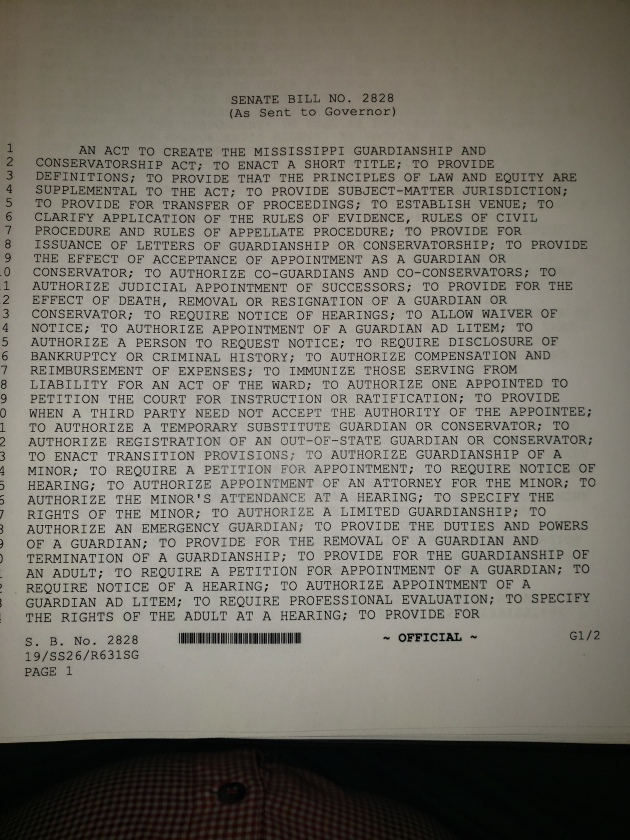The collateral source rule can be summarized by stating “[c]ompensation or indemnity for the loss received by plaintiff from a collateral source, wholly independent of the wrongdoer, as from insurance, cannot be set up by the [defendant] in mitigation or reduction of damages….” Coker v. Five-Two Taxi Serv., 211 Miss. 820, 826, 52 So.2d 356, 357 (1951). “[A] tortfeasor cannot use the moneys of others (insurance companies, gratuitous gifts, etc.) to reduce the cost of its own wrongdoing.” Brandon HMA v. Bradshaw, 809 So. 2d 611, 618 (Miss. 2001).
The Mississippi Supreme Court has applied the collateral source rule to:
- Payments by Medicare. Wal-Mart Stores, Inc. v. Frierson, 818 So. 2d 1135 (Miss. 2002).
- Payments by Medicaid. Brandon HMA v. Bradshaw, 809 So. 2d 611 (Miss. 2001).
- Amounts “written off” by a non related medical provider. Purdon v. Locke, 807 So. 2d 373 (Miss. 2001)
However, the collateral source rule does not apply to amounts written off by the tortfeasor. McGee v. River Region Medical Center, 59 So. 3d 575 (Miss. 2011). A plaintiff can open the door to collateral source evidence by testifying to a lack of funds to pay for treatment. Geske v. Williamson, 945 So. 2d 429, 435 (Miss. Ct. App. 2006). Likewise “when a witness falsely swears that he or she paid, as opposed to incurred, medical expenses when, in fact, the medical expenses were paid by a third party” the court may allow a defendant to cross examine a plaintiff regarding collateral sources. Robinson Prop. Group, L.P. v. Mitchell, 7 So. 3d 240, 245 (Miss. 2009).
Despite the fact that Mississippi has uniformly followed the collateral source rule, defendants and their expert witnesses continue in their attempts to circumvent the rule. The most recent attempt involves expert witness John Schneider, Ph.D.
Dr. Schneider claims to apply a health economics methodology to determine a weighted average of healthcare prices actually transacted in the market. Sartin v. Wal-Mart Stores East, L.P., 1:14-cv-00003-HSO-RHW at page 17 (S.D. Miss. June 5, 2015). In Sartin, use of Dr. Schneider’s “reasonable value” calculation reduced plaintiff’s life care plan from over $2.1 million in charges down to $590,588.
Although Dr. Schneider artfully avoids referencing insurance or any other collateral source in his Report, his methodology for determining the reasonable value of Plaintiff’s medical care would violate Mississippi’s collateral source rule. Dr. Schneider’s methodology differentiates between expected charges for services as opposed to reasonable value or actual cost to a patient.
Sartin v. Wal-Mart Stores East, L.P., 1:14-cv-00003-HSO-RHW at page 23 (S.D. Miss. June 5, 2015). The Court went on to state that “Dr. Schneider’s opinions on the reasonable value or medical care are therefore unreliable and irrelevant.” Id.
Judge Ozerden was again confronted with Dr. Schneider in the case of Williams v. Manitowoc Cranes, LLC, 2016 U.S. Dist. Lexis 3553, (S.D. Miss. January 12, 2016). The result was the same. “Dr. Schneider’s methodology as applied to this particular case represents a backdoor attempt to give Defendant the benefit of any type of write-off from the actual hospital charges…” Id. at pages 11-12. “Dr. Schneider seeks to confer the benefit of any payment or write-off from a third party on the Defendant instead of the Plaintiff. The collateral source rule as it has been interpreted by the Mississippi Supreme Court prohibits this result.” Id. a 12.
While Dr. Schneider and defendants disagree on principle, the public policy behind the collateral source rule is quite simple. “If there is a windfall from which one is to benefit, the injured plaintiff and not the tortfeasor should receive that windfall.” Chickaway v. United States, 2012 U.S. Dist. LEXIS 110602, *7, 2012 WL 3236518 (S.D. Miss. Aug. 7, 2012).


